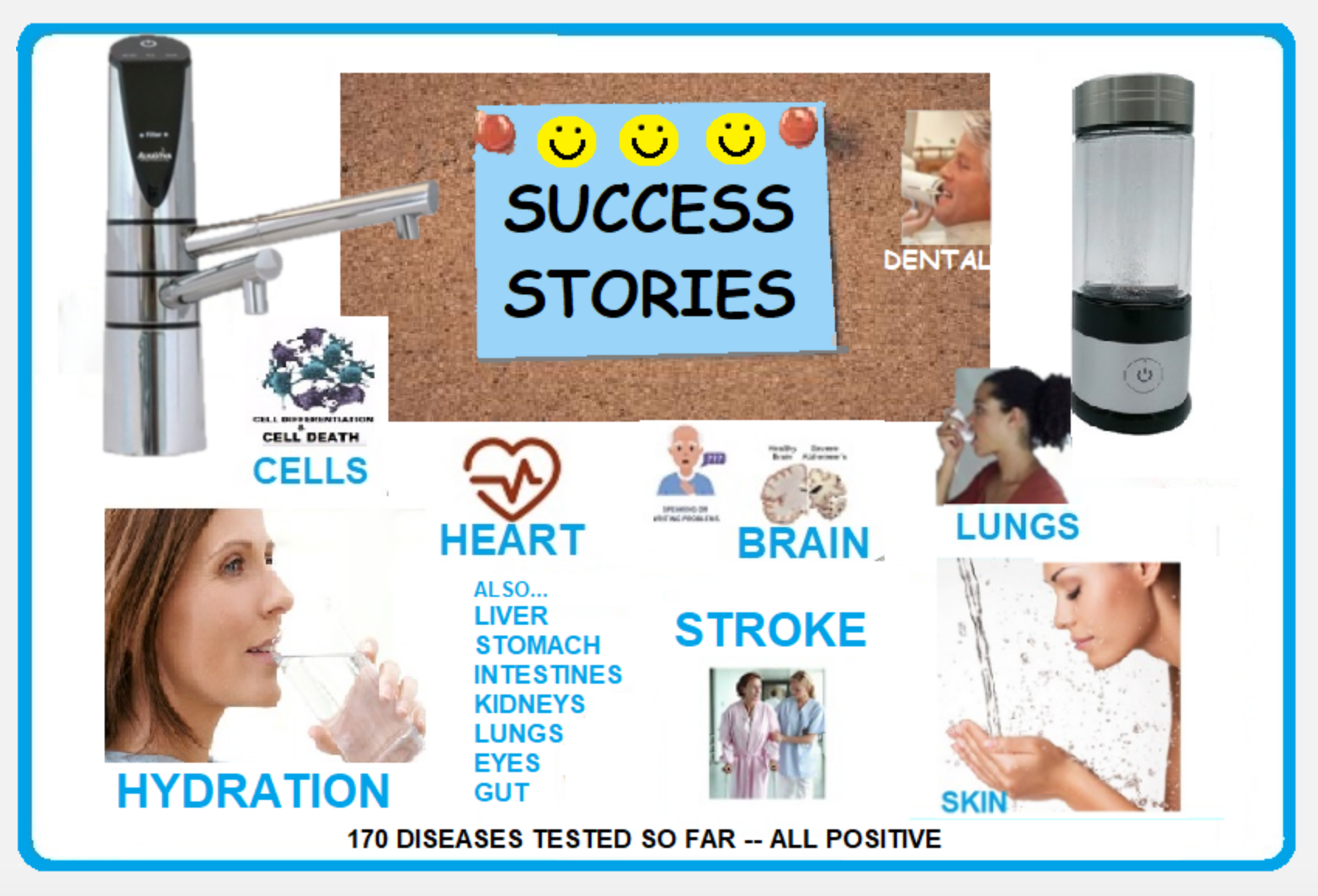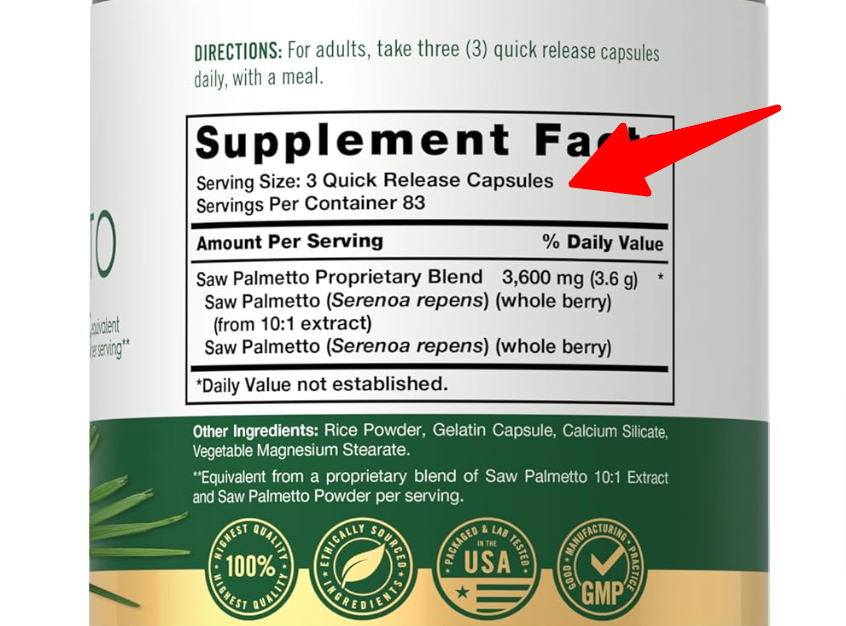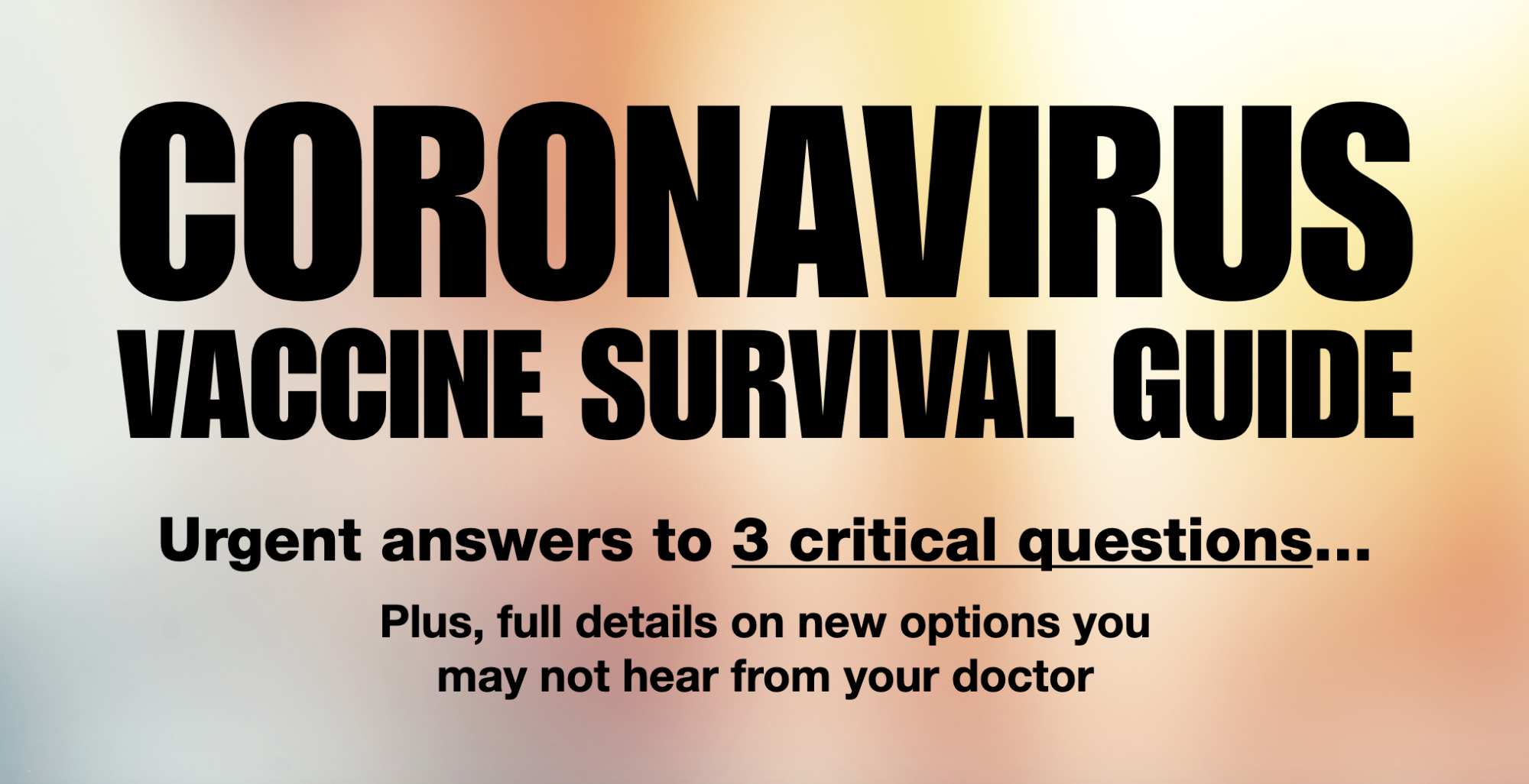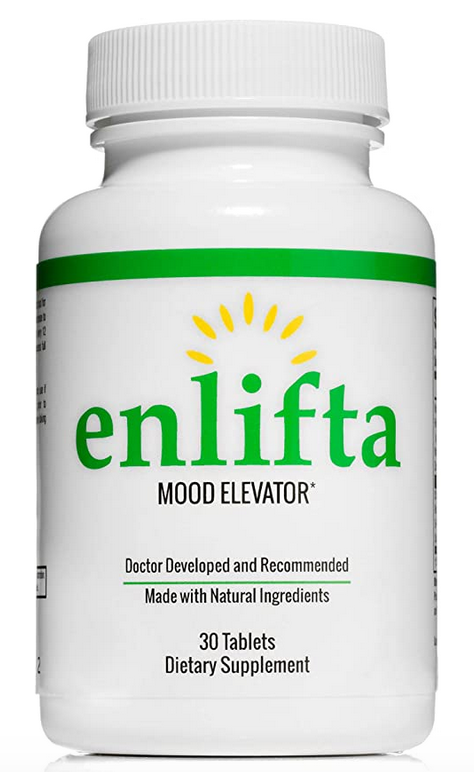
Alkaline Water Plus
Are there really any benefits to drinking alkaline water?
If our Reasonable Consumer Quiz left you with a failing grade, take a stab at this bonus question for some extra credit:
According to the label below, how many servings of 3600 mg of Saw Palmetto does this bottle contain?
(A) 250
(B) 125
(C) 83
(D) 50
Despite the front label showing the product to contain 250 capsules and 3600 mg “equivalent per serving,” the correct answer is not (A) 250.
If that was your guess, as it was for the TINA.org reader who brought this to our attention, you’ll likely be disappointed to find that the bottle only comes with about a third of the amount you’re expecting.
Confused on where you went wrong? Let us explain.
On the back of the package the company discloses that this supplement requires consumers to take three quick release capsules to get the advertised dosage, resulting in the correct answer being (C) 83:
 As our disappointed reader explained, “Nowhere in the ad or on the package does it say the capsules are only 1200mg (there is no ‘each capsule contains’ information on the package). The only way to discover this before purchasing the item is to enlarge the images, both front and back, and do the math.”
As our disappointed reader explained, “Nowhere in the ad or on the package does it say the capsules are only 1200mg (there is no ‘each capsule contains’ information on the package). The only way to discover this before purchasing the item is to enlarge the images, both front and back, and do the math.”
And to make matters even more confusing, the product page on the Carlyle website, as well as the Amazon listing, feature an image of one capsule:
This practice seems to be a habit for Carlyle, as many of the other supplements on its website contain similarly confusing labeling:
This type of marketing is also not limited to Carlyle.
For example, Bayer is currently being sued for allegedly suggesting that just one chewable One A Day multivitamin provides the advertised nutrients when, in reality, the serving size is two chewables.
Carlyle did not respond to TINA.org’s request for comment.
The bottom line
Supplement labeling can be confusing. Always make sure to carefully read all the information on the package, paying careful attention to the back, which can sometimes clarify front-of-product claims.
Learn more about TINA.org’s work regarding supplements here.
Our Ad Alerts are not just about false and deceptive marketing issues, but may also be about ads that, although not necessarily deceptive, should be viewed with caution. Ad Alerts can also be about single issues and may not include a comprehensive list of all marketing issues relating to the brand discussed.
Are there really any benefits to drinking alkaline water?
Guide has some surprising health advice based on its anti-Big Pharma marketing.
FDA targets supplement sellers on Amazon making unapproved disease-treatment claims.

